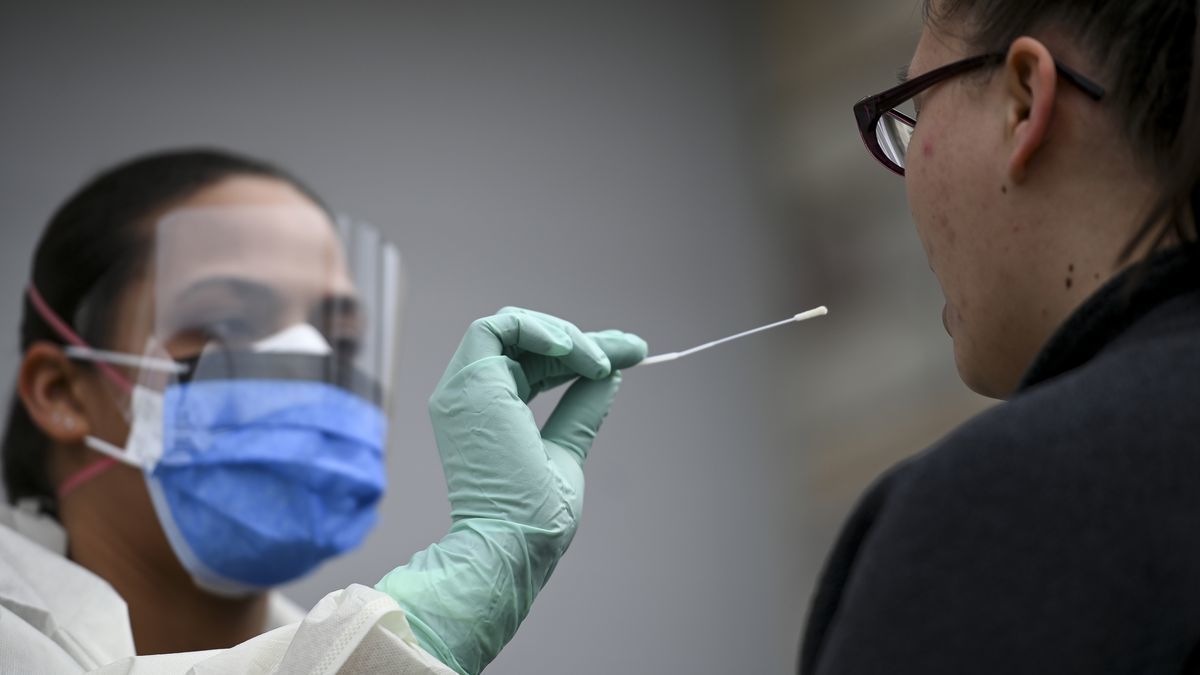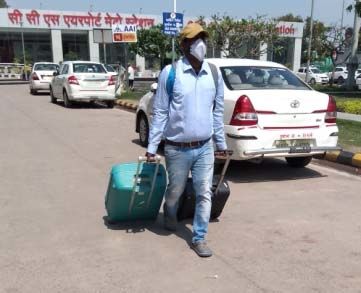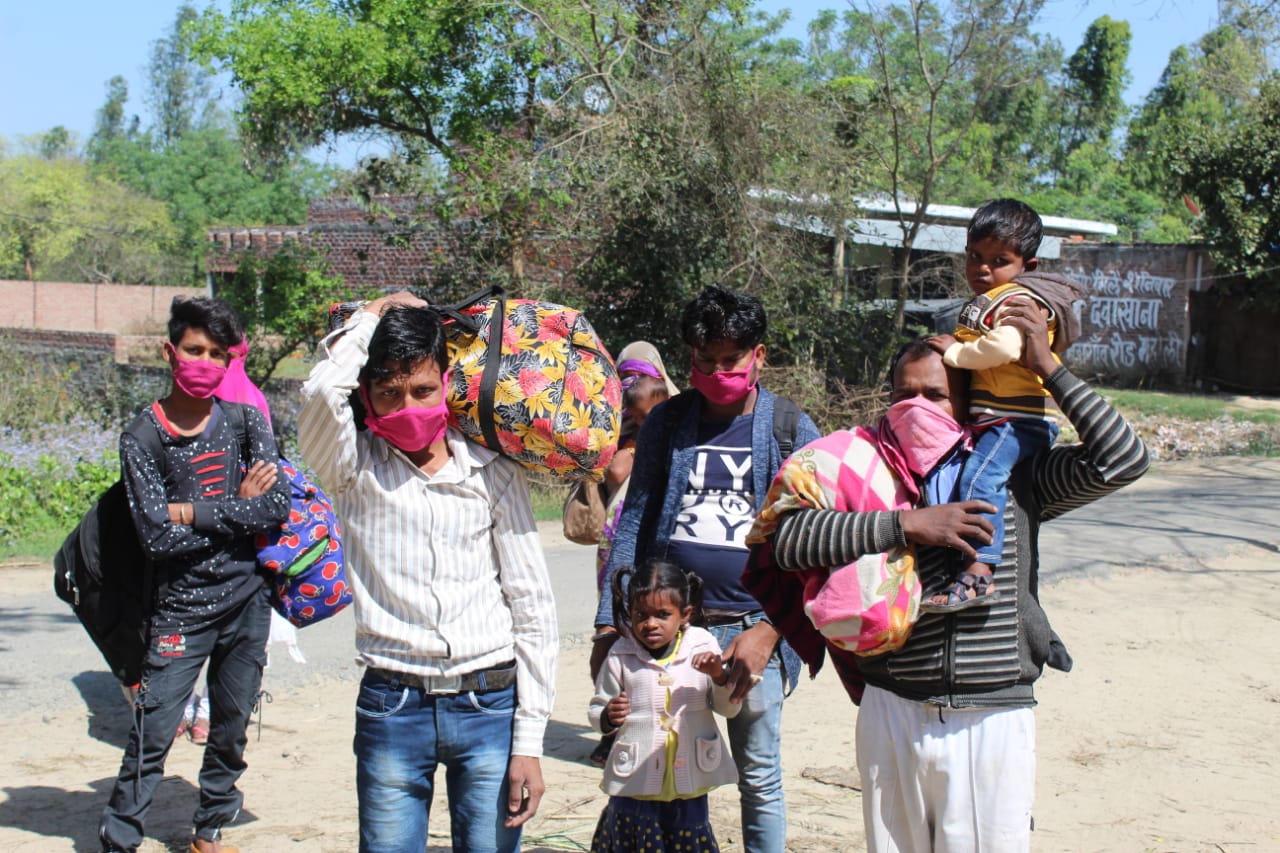“The government machinery has displayed total ineptitude in the handling of the pandemic”
The handling of the coronavirus crisis has once again exposed the weakness of the system and the heavy bureaucratic and political sloth that India is saddled with


The narrative being built around the handling of the coronavirus pandemic in India reminds me of an anecdote. I was posted as the Principal Staff Officer at the Frontier Headquarters of the BSF (Border Security Force) at Jalandhar, Punjab when a proposal recommending a grand welcome to one of our sports teams came to me.
The team had won an All India Police Tournament. Upon inquiries, I found that although the team had won, it had failed to even equal the longstanding meet record by miles. Needless to say, that proposal was rejected with a comment, “celebration of mediocrity is uncalled for”.
Notwithstanding the hype, the government machinery has displayed total ineptitude and lack of professionalism in the handling of the pandemic. The latest example being the instructions on the opening of neighbourhood shops where the amendments are said to be more than the original instructions. The celebrations, therefore, are uncalled for and are aimed at obfuscating the ineptitude displayed in all aspects of the handling of the situation. Any efforts to bring out lacunae in the policy and awry priorities are forestalled by a narrative that India is doing much better than other countries. The lack of finances and a large population base is cited to defend the actions of the government.

The fact that the number of cases in India is much less than in other countries is because we are not testing enough. Other countries, including even Pakistan, are testing many more per million than us. Naturally, the detection is much higher. Since India is testing much less, many deaths may not even be attributed to COVID, which is convenient as it provides avenues to under-report. India has tested only 6,65,819 persons at an average of 482 per million until April 27. This compares adversely even with countries like Pakistan, which has tested 682 persons per million. On the contrary, the testing rate per million in some of the countries with highest reported cases — USA (16,527), Spain (25,656), Italy (29,071), France (7,103), Germany (24,738), UK (9,867), Turkey (10,656) — is way higher than India.
The number of cases detected would be in direct proportion to the number of people tested. Our testing is restricted to people showing symptoms or through contact tracing, so we are able to detect only a limited number of cases. The number of cases reported, therefore, is not the factual indicator of the number of actual cases that may be there in the country. It is ironic that even 35 days after the cancellation of all the international flights, the COVID-testing authorities reportedly are turning back people with symptoms if they do not have a travel history! How is travel history important at this stage when the incubation period of the virus is said to be 14 days or so?
The sense of security generated by these statistics is therefore deceptive and should not lull us into feeling complacent. Any celebrations or back-thumping on this count is therefore premature as the situation is still unfolding.

The lack of testing is attributed to the non-availability of testing kits. But the question that why testing kits were not procured urgently remains unanswered. Reportedly, one MLA of the DMK has even alleged that the testing kits meant for Tamil Nadu were diverted to the USA!
India’s record of low testing is indicative of our lack of priorities.
The entire period of January and February was wasted in spite of serious warnings from several leaders, including Rahul Gandhi. The first case having been detected on January 30, it went up to three in the first week of February, and then remained constant till March 1 indicates that no testing was done during the entire month of February. The government, instead of taking warnings seriously by procuring Personal protective equipment (PPEs) and testing kits, remained busy in fruitless pursuits like welcoming Donald Trump. In the ultimate count, even that didn’t benefit India as the USA arm-twisted India into sending a large consignment of hydroxychloroquine (whether it is useful or not is a different matter altogether) without a promise of any help in return.
The reported insistence of the government in procuring the test kits from a particular firm also added to the paucity as no other kit could be used. The delayed decision to identify and authorise laboratories for testing also led to this state of affair. Even now, the testing capacity is said to be underutilised.

It is apparent that the government did not take things seriously until matters came to a head. That is the reason for the lack of urgency displayed by them in initiating various actions in this regard. Banging thalis, the taalis and lighting diyas ostensibly as a show of solidarity to healthcare professionals is simply an attempt to divert attention from the crass inefficiency displayed in procuring PPEs for them.
The severity of the lockdown could have been avoided had a strong screening system been put in place at the airports from the very beginning as most of the cases initially detected had a history of travel from the COVID-hotspot countries. Yet, the screening systems at the airports remained a mere formality till almost mid-March when the flights were totally banned. Even the Tablighi incident could have been avoided if visa curbs were timely placed and permissions for such gatherings withdrawn with immediate effect like they did for one such event near Mumbai. The fact that the Markaz is located within fifty yards of the Nizamuddin police station also points towards the incompetence of the police and the intelligence agencies.
A robust isolation and tracking system would have ensured that all international arrivals were isolated for the mandatory period and tracked continuously. This would have made the task of contact-tracing much easier. The time lag between the arrival and sending the information to their respective addresses after sifting from the system is proving to be fatal as persons come in contact with a large number of people during this period making it virtually impossible to trace all of them.

The handling of Tablighi event itself was shoddy. Instead of containing the fallout, the machinery went into overdrive and literally accused them of deliberately spreading the virus. The practice of segregating the figures of people who may have been infected due to coming into contact with those who attended the meet in the daily briefing by the Ministry of Health has given the impression that the virus is deliberately being spread by the Muslims. This has initiated a fresh wave of hatred towards Muslims in the country and is an impediment in maintaining social harmony.
That lockdown, at some stage, was essential is generally accepted. However, the abruptness with which it was imposed could have been avoided as suggested above. The sudden imposition, coupled with the suspension of all modes of transport, left the daily wagers with no option but to walk several hundred kilometres to their villages as they were left with no alternative. Most of the labour being employed in the unorganised sector were stranded without work. No work implied no income and hence inability to pay for food and rent. We are almost forty days into the lockdown, and reports indicate that several such daily villagers are still walking to reach homes as against the claim of the government in the Supreme Court that there were no such cases.
The misery that these daily wagers had to undergo due to the hurried and unplanned lockdown is beyond the comprehension of middle and rich classes comfortably ensconced in our gated communities. Social distancing is an extremely difficult proposition for them. That government machinery has failed to factor in this aspect is not a great reflection on their ability to foresee and plan.

The poor have-nots appear to have been left at the mercy of God and the privileged.
The severe lockdown put in place has landed the economy in deep trouble. The GDP growth rate, which had gone below 5 per cent, will perhaps go way down to 2 or even 1 per cent. Unless the government puts a well-thought plan in action, it would be extremely difficult to revive manufacturing and provide employment to the young restive population. The lackadaisical approach is visible in handling of the immediate economic fallout. A package of Rs 1.7 lakh crore has been announced. Many of the provisions, like the three months’ moratorium on repayment of loans, are mere tokenism. One can understand the financial constraints of the government. However, there are many expenses that the government can postpone – like the one on Central Vista — and make available more money for the relief package.
The Food Corporation of India (FCI) godowns are full of surplus food grains, but it is not going to the poor for some inexplicable reason. States like Maharashtra have time and again been requesting the government to release the food grains, but without relief. The report that the government has intended to release surplus rice for making sanitisers is another example of wrapped priorities.
I hope and wish that the number of coronavirus cases in India will remain under control and we will come out of the pandemic without much loss of life. However, handling of the crisis has once again exposed the weakness of the system and the heavy bureaucratic and political sloth that India is saddled with.
The celebration of mediocrity that has been set in motion by symbolism of “thali, taali, deeya” events cannot hide the incompetence and callousness of our systems.
Sanjiv Krishan Sood is a retired Additional Director General of Border Security Force. Having put in over 38 years of meritorious service, he has served along all the borders of our country with Pakistan and Bangladesh
(Views are personal)

